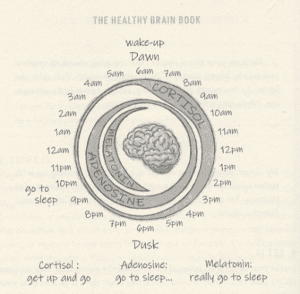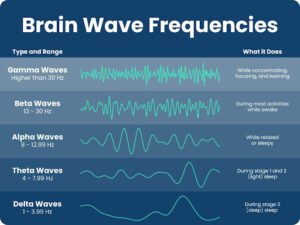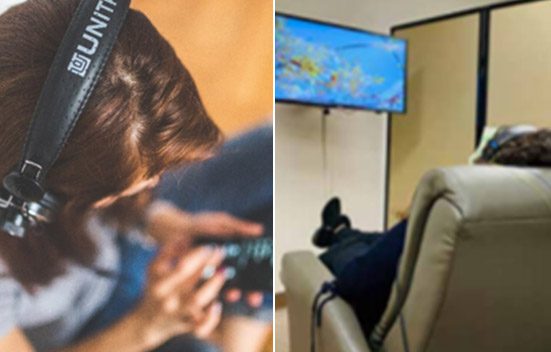DON’T BE ONE OF THE VICTIMS OF EXHAUSTION!
We work hard,
We are stressed
We dream of a vacation,
We deserved it!
Our work acts as an important focal point of our lives. The push to improve our careers and grow our presence in our chosen field. This can be a tiring and stressful process. Thoughts of vacation often start in the moments between work. When the small pause grants us a hint of rest, we imagine our next vacation. Surely after it, we will be full of vigor and ready to push even harder to improve our lives. Except when our long-imagined and well-deserved vacation finally arrives the jetlag of the trip ruins the experience. Unable to properly sleep, we become incapable of the actions and inactions that are needed for a proper rest from work.
When the first Monday of our return arrives, we are just as tired as when we left but with a larger mountain of tasks awaiting our arrival.
This process is the well-trod tale of millions of Americans, but it doesn’t have to be yours. You don’t need to be one of the countless people who return from vacation without having been able to enjoy it. Imagine being able to take any trip no matter the travel length and being able to adapt to your new sleep pattern smoothly and elegantly.
enjoy it. Imagine being able to take any trip no matter the travel length and being able to adapt to your new sleep pattern smoothly and elegantly.
It is possible.
To understand how this is possible it is important to know how jetlag happens. Jet lag is a circadian rhythm sleep disorder that occurs when a person’s internal body clock is out of sync with the local day-night cycle after traveling across multiple time zones.
Our bodies have a natural circadian rhythm that regulates sleep-wake cycles, hormone production, and other physiological processes over roughly a 24-hour period. When we travel quickly across time zones, such as during long flights, our internal clock struggles to adjust to the new schedule imposed by the destination’s time zone. This mismatch between the body’s internal clock and the external time zone leads to symptoms like fatigue, difficulty concentrating, disrupted sleep patterns, and gastrointestinal discomfort.
It takes time for your body’s internal clock to resynchronize to the new time zone, about 1-1.5 days per time zone crossed. The severity of jetlag can vary depending on factors like the number of time zones crossed, the direction of travel, individual differences in circadian rhythm adaptation, and the duration of travel. During this transition period, you experience jet lag symptoms. Adjusting gradually to the new time zone, maintaining good sleep hygiene, exposure to natural light, and staying hydrated can help alleviate jetlag symptoms and hasten the adjustment process.
HOW NEUROFEEDBACK CAN HELP
Neurofeedback is a truly impressive technology that can help mitigate jet lag by targeting the brain’s electrical activity and promoting better adaptation to new time zones.
Neurofeedback’s ability to stimulate neuroplasticity has big effects on your capacity for releasing stress and achieving a higher level of self-regulation. This increase in neuroplasticity will also increase your internal quality of communication, and in turn, the combination of these factors helps you develop your resilience.
 By monitoring brainwaves, through electroencephalography (EEG), the brain’s power for self-regulation is given the proper support. Allowing your brain to improve itself using your natural healing ability. This in turn leads to achieving desirable brainwave patterns associated with relaxation, alertness, or readiness for sleep, depending on the time zone adjustment needed.
By monitoring brainwaves, through electroencephalography (EEG), the brain’s power for self-regulation is given the proper support. Allowing your brain to improve itself using your natural healing ability. This in turn leads to achieving desirable brainwave patterns associated with relaxation, alertness, or readiness for sleep, depending on the time zone adjustment needed.
Through repeated sessions, neurofeedback aims to train the brain to more efficiently synchronize its circadian rhythms with external time cues, reducing the severity and duration of jet lag symptoms. Neurofeedback’s ability to stimulate brainwave activity and promote neural plasticity allows the enhancing the body’s adaptation to rapid time zone changes.
Thanks to the capabilities of your own brain with the encouragement of our technology you can develop neuroplasticity to achieve robust and deep sleep. To catch the rhythm of the place where you are with more ease and adaptability. Aid with being in the present, at peace, and relaxed which in turn will allow you to make the most of your necessarily limited vacation time.
 Amelie is a very active young woman who needs to travel for work and a variety of business projects. Usually, she has a very hard time being fully present for the first few days and she struggles a lot to follow along no matter what she tries! After her Neurofeedback brain training with specific sessions for jetlag when she came back she said: “For the first time, I was so productive right away without effort when I went to my last conference in Baltimore (3 hours difference). I’m so happy you introduced me to this option, it’s life-changing!”
Amelie is a very active young woman who needs to travel for work and a variety of business projects. Usually, she has a very hard time being fully present for the first few days and she struggles a lot to follow along no matter what she tries! After her Neurofeedback brain training with specific sessions for jetlag when she came back she said: “For the first time, I was so productive right away without effort when I went to my last conference in Baltimore (3 hours difference). I’m so happy you introduced me to this option, it’s life-changing!”
Duncan is a very successful business owner with 48 employees and 3 locations to manage. For the last decade, Duncan has not enjoyed either life or vacation. His brain was overloaded. After his recent brain training, he went on vacation to Bora-bora and for the first time, he enjoyed every minute of this vacation. His wife said, you have changed a lot, it is so great to find the young man you were before! Duncan told us, “It was my best vacation ever!”. Contact us so you can have the same experience, just book your complimentary consultation online.
 Lauren went to Paris to celebrate the graduation of her eldest son. It was a family trip that she wanted to enjoy, but she was so exhausted she was worried about the 9-hour trip difference. She decided to come see us and what a result! After her brain training, she was relaxed during the trip, full of energy and happy in Paris. The whole family benefited from her joy and presence! We can overcome jetlag with our tools, so do not hesitate to book your complimentary consultation.
Lauren went to Paris to celebrate the graduation of her eldest son. It was a family trip that she wanted to enjoy, but she was so exhausted she was worried about the 9-hour trip difference. She decided to come see us and what a result! After her brain training, she was relaxed during the trip, full of energy and happy in Paris. The whole family benefited from her joy and presence! We can overcome jetlag with our tools, so do not hesitate to book your complimentary consultation.
The innerOptimal team wishes you a happy summer!





